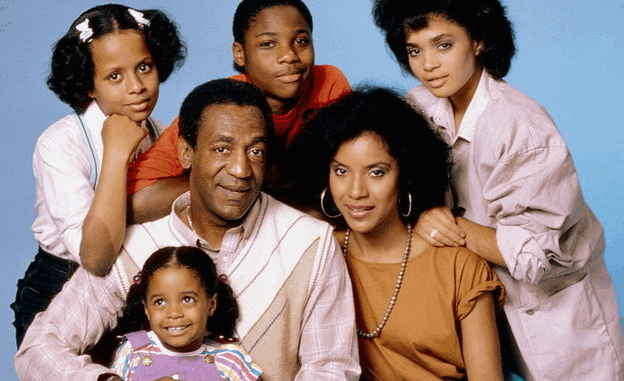
Few television shows have had the power to not only dominate the ratings but also shift the cultural and industrial landscape of an entire medium. The Cosby Show, which aired from 1984 to 1992, is one of those rare exceptions — a sitcom that didn’t just reflect society, but helped redefine it.
Breaking Barriers in Prime Time
Before The Cosby Show, representations of Black families in mainstream American media were often limited, stereotypical, or relegated to secondary roles. With the Huxtables, TV audiences saw something revolutionary: a successful African-American family led by two accomplished professionals — Cliff, a doctor, and Clair, a lawyer — raising five children in a warm, humorous, and thoughtful household.
This normalization of Black excellence on prime-time television was unprecedented. The Cosby Show showed that stories centered around African-American families could be universal, relatable, and commercially successful.
A Ratings Giant That Changed the Game
At its peak, The Cosby Show was a juggernaut. It was the number one show in America for five consecutive seasons and played a major role in reviving NBC, which had been struggling at the time. The success of the show helped NBC leapfrog over its rivals and usher in what became known as the “Must See TV” era.
Its success also demonstrated the immense marketability of Black-led shows — paving the way for future series like Martin, Living Single, The Fresh Prince of Bel-Air, and later, Black-ish. Cosby didn’t just break ratings records — he opened doors.
Setting New Standards for Sitcoms
Beyond its cultural importance, The Cosby Show raised the bar for sitcom production. Its clean writing, live audience energy, and focus on subtle character development over slapstick humor gave the show a timeless quality. The use of jazz and blues in the opening credits, the stylish wardrobe, and the multi-generational story arcs gave it a sophistication rare in sitcoms of the time.
Writers, producers, and television networks took notice. Suddenly, it became clear that sitcoms didn’t have to rely on outdated tropes or laugh tracks alone — they could be elegant, intelligent, and deeply human.
A Lasting but Complex Legacy
Today, The Cosby Show remains a point of contention in pop culture. Bill Cosby’s personal crimes have understandably cast a shadow over the legacy of the show. Yet, for many, the impact of the series on American television, especially in terms of representation, cannot be erased.
It’s a legacy marked by innovation, influence, and moral complexity — one that scholars, critics, and fans continue to unpack.
Conclusion
The Cosby Show didn’t just entertain — it educated, innovated, and pushed television forward. It forced a national conversation about race, class, and family, all under the banner of prime-time entertainment. While its legacy may be clouded, its role in reshaping American television is undeniable.
